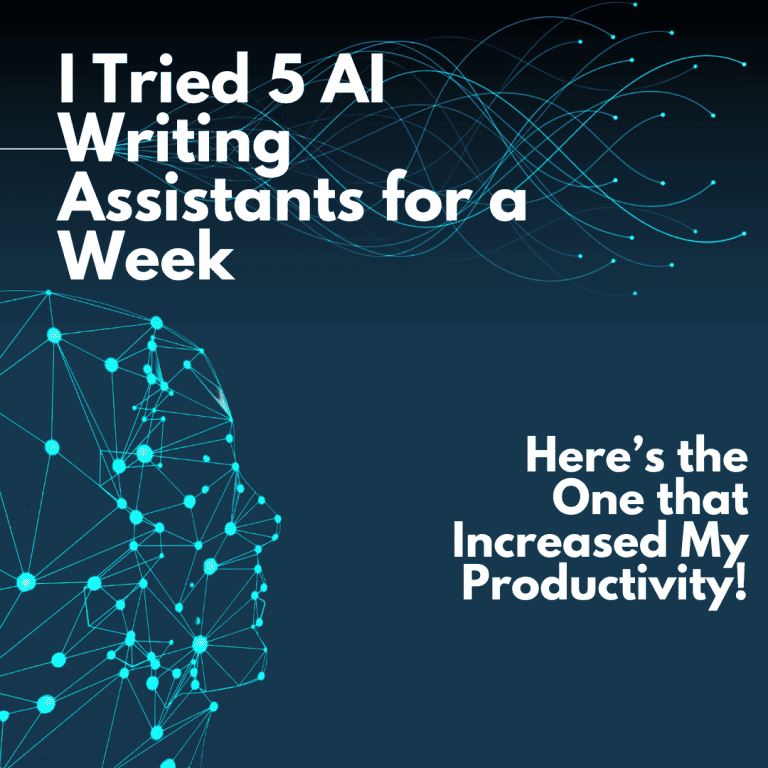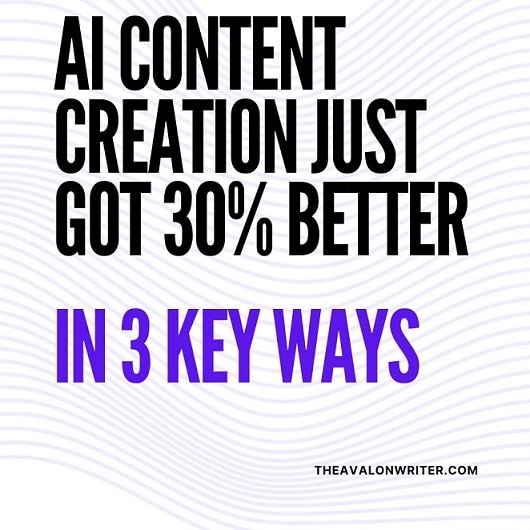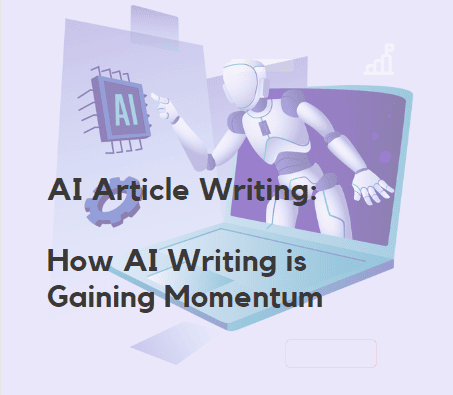Can AI Writing Assistants Ever Truly Replace Human Writers?

Introduction
In recent years, AI writing assistants have exploded in popularity. Annual growth rates for these tools have skyrocketed to over 20% as millions of writers have adopted AI tools like ChatGPT to enhance their productivity. However, despite the hype, many content creators are asking – can these tools ever truly replace human writers?
The appeal is understandable. At first glance, AI writing assistants seem to promise a world of push-button content creation. Need an article drafted in seconds? An AI assistant can help with that. But many have discovered these tools come with substantial downsides. Plagiarism, factual inaccuracies, and tone-deaf language are common pitfalls. So while AI will undoubtedly transform certain aspects of writing, true mastery of the craft remains unique to humans.
This article will analyze what these tools are good at, where they fail, and how writers can strike the optimal balance by using AI as an aide rather than a replacement. By understanding the strengths and limitations of both man and machine, we can employ AI responsibly while preserving what makes the written word so powerfully human.
Key Takeaways
- AI writing tools like ChatGPT can draft content incredibly fast, helping writers be more productive. However, these tools lack the human creativity, critical thinking and emotional intelligence required for high-quality writing.
- AI excels at rapid drafting, topical research and text analysis. But human writers are still unmatched in imaginative storytelling, witty language, and connecting with readers.
- Over-relying on AI can lead to issues like factual errors, plagiarism, and spammy content. Writers should review all AI-generated text closely before publishing.
- The best approach is using AI as an assistant to handle repetitive writing tasks, not as a replacement for human writers.
- As the technology continues advancing, AI will keep improving at mimicking human tone and personality in writing. But human gifts like ingenuity and empathy will ensure the enduring value of writers.
Definition & Contrast of AI Writing Tools vs. Human Writers

Before analyzing whether AI can replace human writing, we should clearly define what these tools can and can’t do. AI writing assistants use machine learning algorithms to generate or refine written content. Popular options like ChatGPT ingest vast datasets, including news articles, academic papers, and online content, to train their models.
These tools excel at quickly drafting or revising content on various topics based on the parameters you set. You can provide a topic, target audience, outline, or length and typically receive a passable draft within seconds. Useful for short-form or repetitive content needs.
However, for all their data-crunching abilities, AI tools lack fundamental human writing capabilities – critical thinking, creativity, and emotional intelligence. They cannot yet match the contextual reasoning, original ideation, or empathetic voice that human writers use in their work.
Nor can they establish a unique authorial style or perspective when producing content. Present an AI assistant with the same topic prompt, and it will reliably generate relevant, well-organized content. But the writing will never be truly distinctive without the flair of human inspiration. So, in short – AI’s strengths lie in speed and versatility, while humans remain the undisputed masters of quality, nuance and ingenuity.
What Can AI Writing Tools Do?
When it comes to generating content fast, AI assistants are unmatched. Need a decent first draft quickly? No problem – just provide keywords and parameters, and you’ll have multiple paragraphs within seconds or minutes.
These tools can scan millions of online sources to provide researched facts, statistics, and quotes in your content. Many now provide basic grammar/spelling correction and text analysis too.
However, their analytical nature also exposes some critical, creative limitations. Because AI tools lack real-world experience, they often miss the nuanced vocabulary, metaphorical language, or subtle emotional tones that connect deeply with readers.
And while they can generate original content, it’s ultimately derived by remixing elements from their training data. Truly groundbreaking ideas require the ingenuity of the human mind.
So if you need rapid drafting or topical research, AI can help lift the weight. But for impactful stories that forge authentic connections – that remains the craft of skilled writers.
The Unique Abilities of Human Writers

While AI tools have strengths in drafting speed and topical mapping, the craft of impactful storytelling remains distinctly human. Why? Because people possess innate gifts that computer programs simply lack.
Chief among these is creativity. Humans have experiences, emotions, and imaginations that data sets cannot replicate. This allows us to generate ideas and stories filled with wisdom, wit, and feeling that resonate meaningfully.
We also have critical thinking capacities like contextual reasoning, cultural understanding, and irony to evaluate stories and place them into better perspectives. Our empathy further helps us craft content that resonates with specific audiences.
And perhaps most relevant to branding – human writers develop distinctive authorial voices. Our diverse upbringings, personalities, motivations and interests inject unique flair into our work. An audience connects with the writer’s self-expression.
So while AI will continue advancing, human creativity, emotional intelligence and critical thinking set our writing apart. And help us forge those profound writer-reader connections that content generators can’t replace.
3 Tips for Avoiding Pitfalls of AI Content Creation
AI writing tools promise to create content faster and easier; over-relying on these technologies can backfire.

Here are 3 tips for avoiding potential downsides:
Don’t Rely Blindly on AI Tools
AI can make innocent factual mistakes or logical lapses that humans would catch. And many tools pull snippets of content from across the web, risking accidental plagiarism. So, reviewing and editing any AI-generated drafts is essential before publishing. Assume errors until proven otherwise!
Avoid Low-Quality or Spammy Content
The sheer speed of AI writing can tempt creators to produce subpar content. But Google’s algorithms ruthlessly punish low-value, spammy content these days. Take the time to craft content that helps your audience, even if that means writing slower. Prioritize quality over quantity.
Preserve Creativity and a Unique Voice
While AI can research and analyze data, only you can bring creativity, voice, and brand tone to your content. Use tools as a starting point, but constantly refine posts to resonate with what makes your perspective special. This preserves the human element that brings true connection.
Balancing Act: AI As an Assistant, Not Replacement
Rather than viewing AI tools as rivals, the healthiest perspective is to see them as assistants. These technologies excel at drafting, research, and content analysis fast. However, they lack the emotional intelligence, critical thinking, and creativity that make human writing unique.
The solution is balance – let artificial intelligence handle the repetitive, analytical “heavy lifting” involved in writing while human writers focus on crafting original ideas and infusing brand tone and creativity. Think of tools like ChatGPT as an extra team member offering support, not as a robotic replacement.
By leveraging human strengths and AI capabilities, writers can increase their productivity exponentially while retaining what truly matters. View AI as a collaborator that supercharges writing rather than competing for your job. Together, man and machine can achieve so much more than either could alone.
The Future of AI Writing Tools
AI writing tools have advanced but still have much room for growth to match human creativity. As these technologies incorporate more training data, the quality and utility of their writing will continue to grow.
We can expect AI tools to improve at mimicking human tone, personality, and humour. Some experts predict another 5-10 years before AI can reliably pass basic Turing tests for believable language generation.
However, questions around data bias, plagiarism, and proper citation remain ethical concerns if not addressed responsibly as the technology improves.
Striking the Right Balance
The optimal path is to embrace AI’s strengths while recognizing unique human skills essential for impactful writing. Lean on tools for efficiency but let people drive creative direction.
Humans must focus on high-level tasks like formulating ideas and strategizing – things current AI cannot match. AI can supply supportive functionality like draft writing, analysis, and research at scale.
Think of AI as the guiding hand that alleviates lower-level workload so writers can focus on passion-driven creation. Man provides the voice and makes people heard.
Conclusion
AI writing tools have unlocked a new domain of efficiency. The ability to instantly generate huge amounts of decent content has never been more accessible. However, these tools’ limitations around accuracy, originality and humanity also remain quite apparent.
While this technology continues advancing, true mastery of the written word relies on unique human traits like creativity, critical thinking, and emotional intelligence. These gifts empower writers to make meaningful connections through stories in ways no algorithm can replicate.Therefore, the optimal solution is balance. Lean on AI for production support but let people drive creative direction. View these tools as collaborators rather than competitors. AI will surely reshape elements of the craft, but the heart and soul of impactful writing spring eternal from the imagination of humans.





